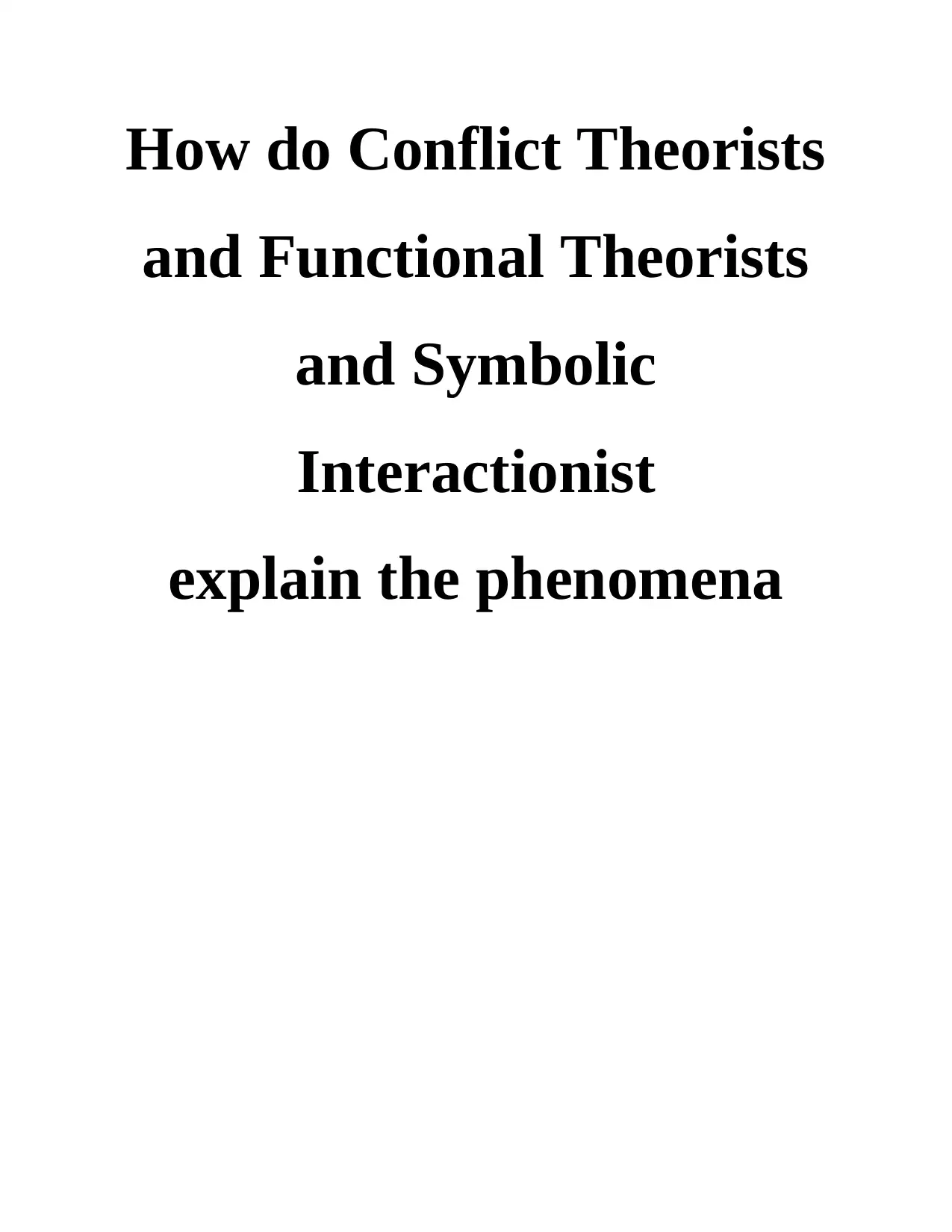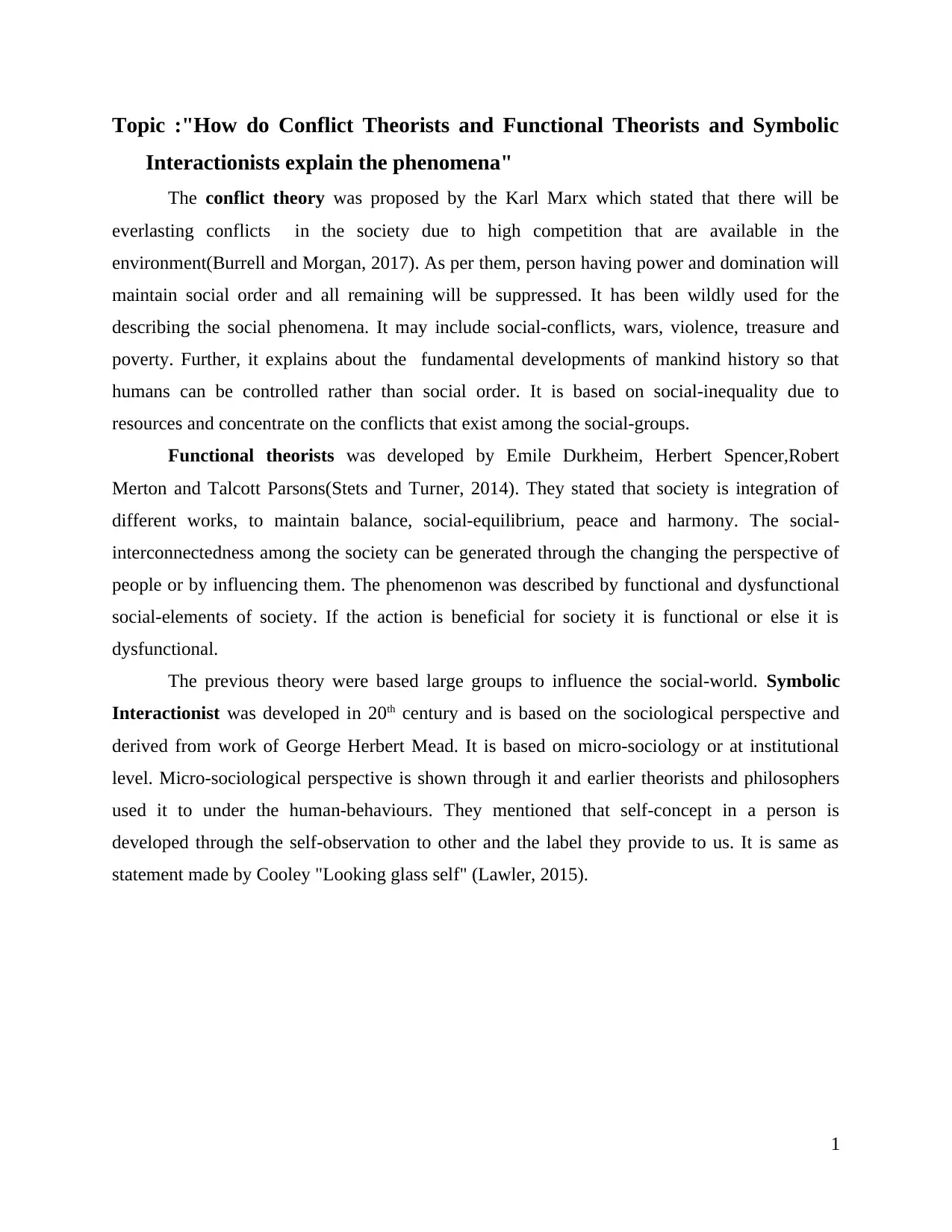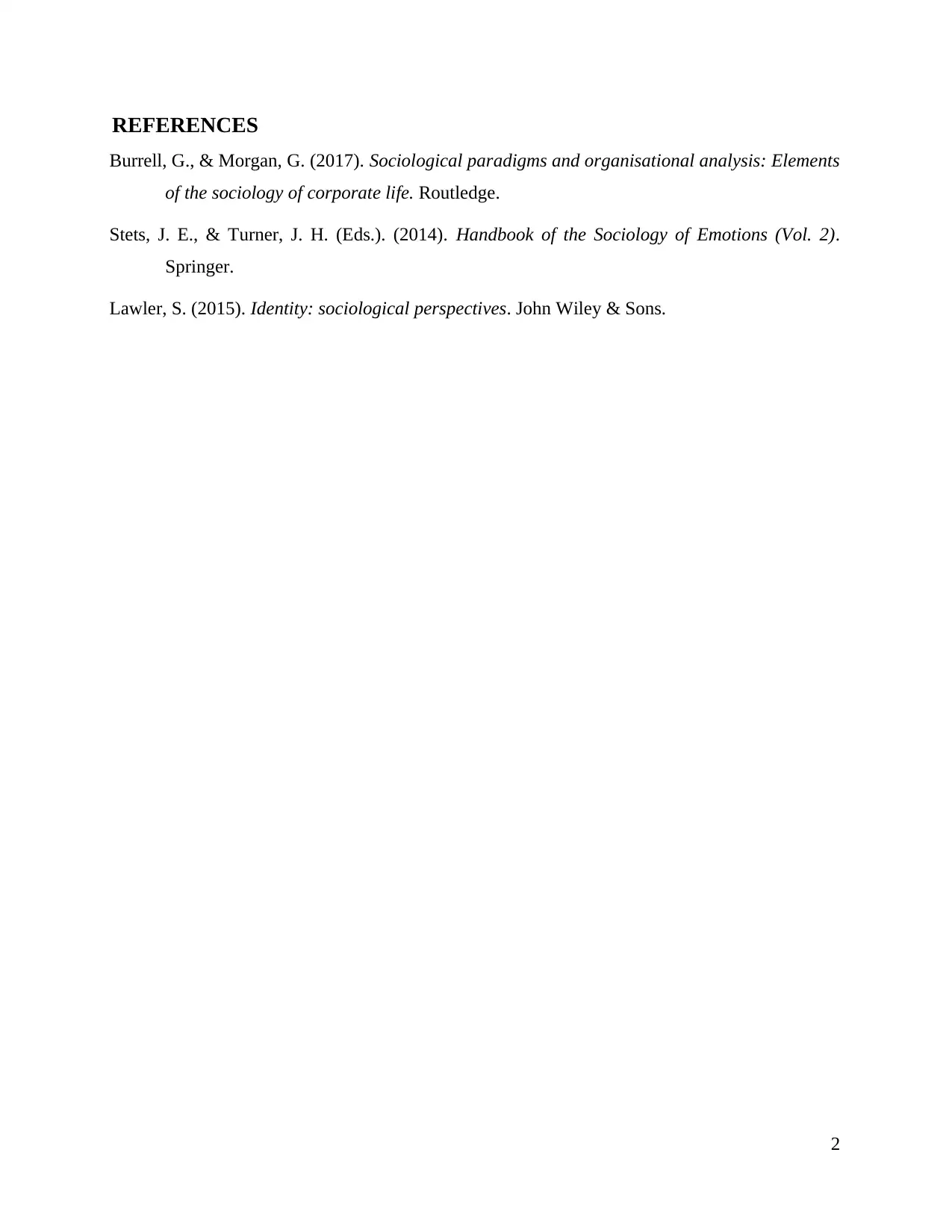Conflict Theorists and Functional Theorists: Society Analysis
VerifiedAdded on 2020/07/22
|4
|454
|309
Report
AI Summary
This report delves into three prominent sociological perspectives: conflict theory, functional theory, and symbolic interactionism. Conflict theory, as proposed by Karl Marx, emphasizes the inherent conflicts arising from power imbalances and competition, leading to social inequality and the suppression of certain groups. Functional theory, developed by scholars like Emile Durkheim, views society as an interconnected system striving for equilibrium, where social elements are either functional or dysfunctional. Symbolic interactionism, rooted in the work of George Herbert Mead, focuses on micro-level interactions and how individuals develop their self-concept through social interactions and interpretations of others' views. The report references key literature to support each theoretical perspective, providing a comprehensive overview of these fundamental sociological concepts and their applications in understanding societal phenomena.
1 out of 4








![[object Object]](/_next/static/media/star-bottom.7253800d.svg)